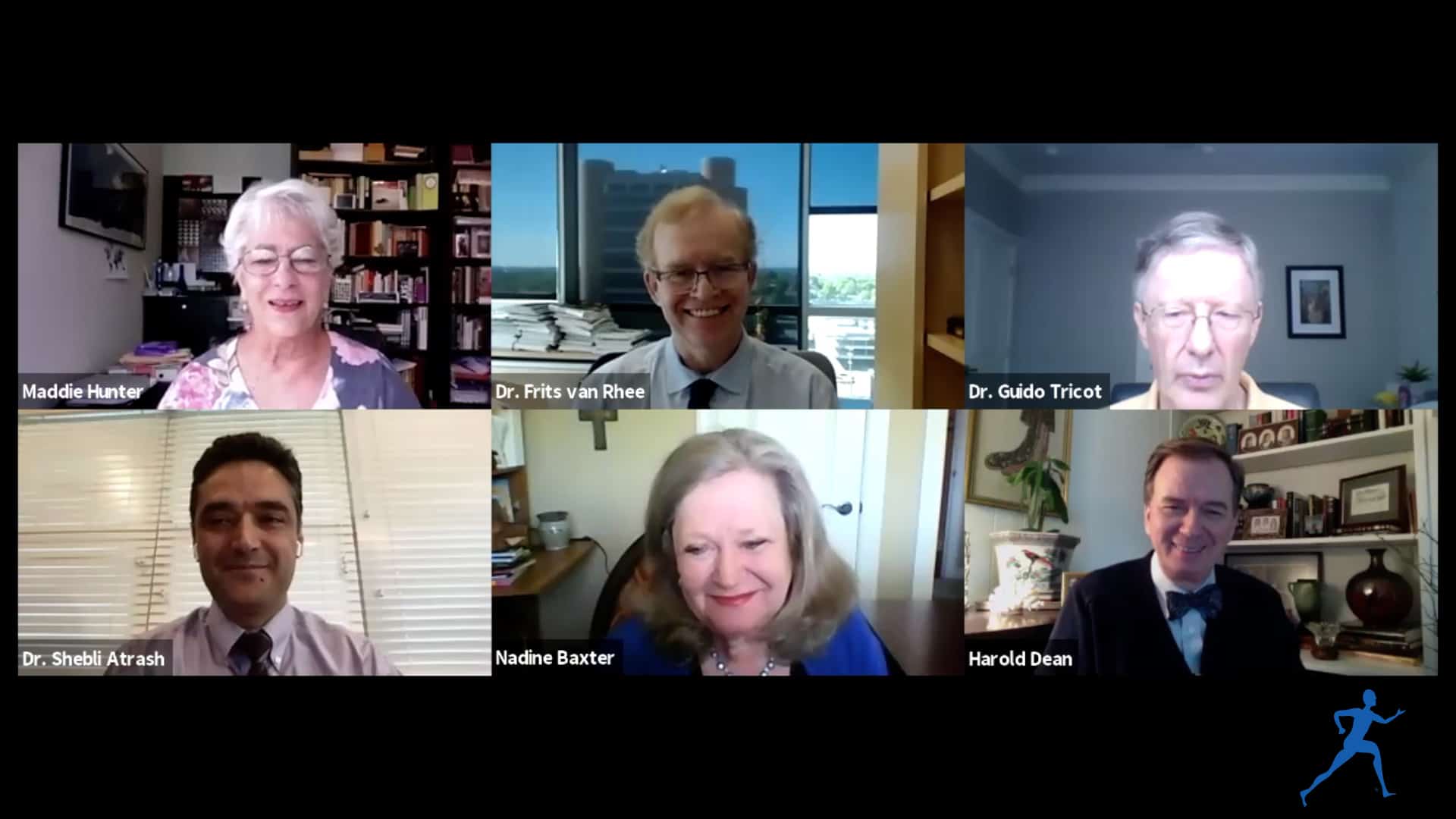Myeloma Center, Patient Power Host Webinar for Patients Across Nation and World
| A recent live online town hall featuring UAMS Myeloma Center physicians, nurses and social workers shared information with 340 myeloma patients from across the nation and world.
“Creating Your Own Myeloma Roadmap: From Diagnosis to Survivorship” was originally scheduled to be held both in person and online, but was changed to be held through a Zoom live stream to prevent the spread of COVID-19.
The free March 18 event was presented by UAMS and Patient Power, an organization dedicated to supporting cancer patients and their loved ones through education and advocacy.
It focused on the journeys of myeloma patients, from treatment to remission and recovery. Topics included diagnosis, importance of genetic profiling, imaging, and the advantages of getting involved with developing research.
Panelists included Frits van Rhee, M.D., Ph.D., clinical director of the UAMS Myeloma Center; UAMS myeloma expert Guido Tricot, M.D., Ph.D.; and Shebli Atrash, M.D., hematologist/oncologist with Levine Cancer Institute at Atrium Health’s Carolinas Medical Center in Charlotte, North Carolina,
“Being diagnosed with myeloma is a life-changing event but many of our patients do very well,” van Rhee said. “The first thing we do is set the goal of the treatment. Some may be curable with more intensive therapy.”
The type of myeloma the patient has is also a factor as some are easily treatable while other more aggressive myelomas are more challenging.
“Treating myeloma is like a war and the more you know about the patient’s genetic information, the less likely you’ll be surprised,” said Tricot.
Atrash stressed the importance of getting second opinions and seeking treatment from a center of excellence.
“I believe 85% of patients are treated out in the community as there are very few myeloma centers in the United States,” said Atrash, who previously worked with van Rhee and Tricot at UAMS. “It’s very important to see someone at a myeloma center of excellence,” Atrash said.
Andrew Schorr, who founded Patient Power with his wife, Esther.
“The UAMS Myeloma Center is one of the foremost centers in the world,” said Schorr. “We were honored to work with the Myeloma Center for a third time and bring myeloma patients everywhere the latest information to help them live long and live better.”
“We were thrilled to once again partner with Patient Power,” said van Rhee, an internationally recognized specialist in immunotherapy for myeloma, Castleman Disease, and POEMS Syndrome.
The event included an overview of myeloma and topics such as working as a team with your doctor, current and future treatment options, the advantages of participating in clinical trials, and guidance on securing financial, educational and emotional support.
Tricot with colleagues pioneered induction chemotherapy treatment of using anti-myeloma drugs before high-dose chemotherapy and stem cell transplant, which increased the median survival rate for newly diagnosed patients from 2 ½ years to 10 or more.
Others from the Myeloma Center included advanced practice nurse Nadine Baxter and social work program manager Harold Dean, a licensed clinical social worker.
Maddie Hunter of Philadelphia, an 18-year survivor and leader of the Philadelphia Multiple Myeloma Networking Group, served as host. Patients and caregivers serving on the panel included patient Lyndell Worthen of Conway, a 74-year-old retired minister diagnosed with myeloma in 2010; his wife, Mary; and Cindy Chmielewski of New Jersey, a retired teacher diagnosed in 2008 who has since become a patient advocate and mentor.
